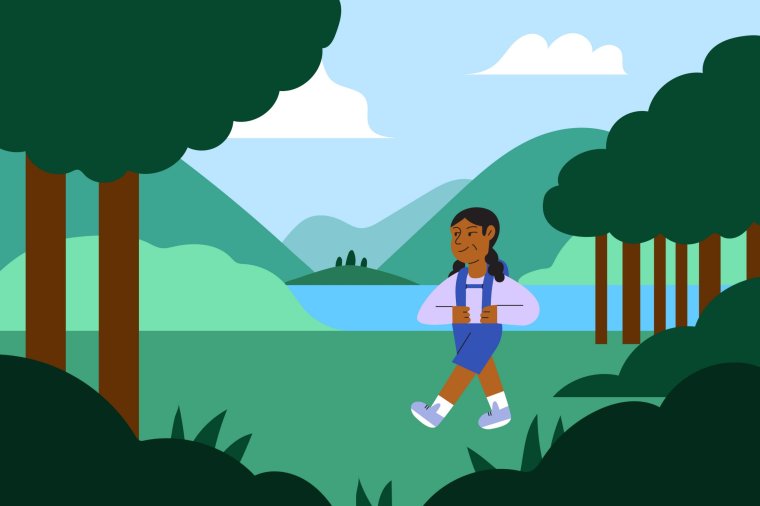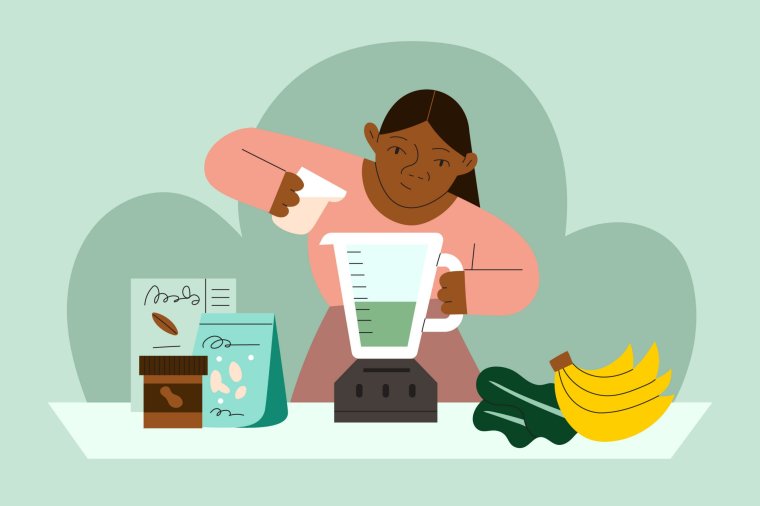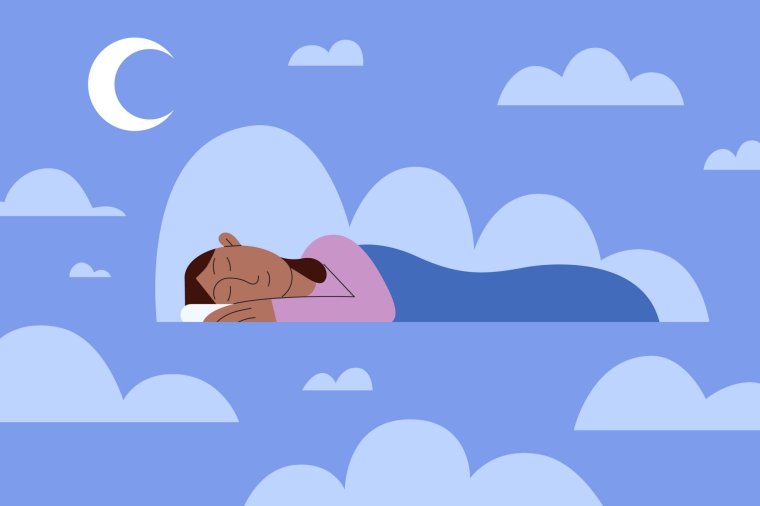Look for glimmers
“The opposite of triggers, glimmers are micro moments of joy that help us to feel calm and safe by soothing our nervous system. They can be anything from the joy of hearing your favourite song on the radio to that first sip of coffee in the morning. The more you intentionally look for and acknowledge them, the more you will naturally spot them day to day and realise they are all around you.” Ciara McGinley, meditation teacher and founder of Finding Quiet
Keep drinking water
“Proper hydration is essential for regulating emotions. Dehydration can lead to fatigue, confusion and irritability, making it harder to manage stress. Drinking enough water helps ensure the brain functions optimally, allowing you to stay calm and focused throughout the day.” Sophie Trotman, nutritionist
Recognise sources of worry
“Take 10 minutes every day to focus your awareness inwards and recognise your main sources of worry. This is principally an acknowledging exercise whereby rather than trying to analyse or solve any problems, you simply recognise that the problem exists as a psychological burden you are carrying around with you. Try giving the problem a label, such as health worry, relationship issue, finance problem, legal battle or work issue. After you have labelled these sources of worry, let go of them and allow them to be. Labelling our problems like this helps to separate us from them and understand that they do not need to define us.” Dr William Van Gordon, associate professor of contemplative psychology at the University of Derby
Upgrade your moments of rest

“To cultivate inner calm, there needs to be a certain amount of space and quiet in the mind, which is difficult if your mind is always distracted. Indeed, having a constantly busy mind restricts our capacity for self-awareness and can make us feel restless, on edge and dissatisfied. So try not to succumb to always using periods of rest or downtime to pick up your mobile phone, scroll through social media, watch TV or play computer games. Instead, use that time to stop, and notice what is happening inside and around you.” Dr William Van Gordon
Moderate your reactions
“When you have a reaction to a stressful situation, ask yourself: is this reaction helpful? If it is not, see if there’s a more helpful one you can replace it with.” Lily Silverton, life coach and founder of The Priorities Method
Close your mouth
“This might sound like a really strange one but it’s more powerful than you might think. Breathing through our mouths is not good for us – and is not the best way to get air into our lungs. Our respiratory muscles are more engaged during inhalation when we breathe through our nose, so our lungs can take in more oxygen, and we get more oxygen to the brain. It also creates more calm, as breathing in through the mouth is more of a reactive response when we can’t get a breath, so puts us in a fight or flight state. When watching TV or scrolling through our phones, our mouths might be open without us realising – closing it can be an easy way to rebalance ourselves.” Anna Parker Naples, breathwork practitioner and founder of Influential Breathwork
Cut back your to-do list
“Instead of overloading your day with tasks, write a to-do list and then halve it – twice. We tend to be overambitious and put more on the list than is realistic, so prioritise what truly matters and let go of the non-essentials. This approach ensures that your tasks are manageable and focused on what is important, reducing the anxiety of an overwhelming to-do list. A shorter, more intentional list keeps you on track and allows you to end your day feeling accomplished rather than overburdened.” Nina Mandair, empowerment coach and psychology expert
Make your walk mindful

“This is a great way to soothe the nervous system and bring a sense of calmness to your day. Take time to focus on each of your senses as you walk, noticing what you can see, hear, feel, taste and smell. Sit with each one for a few moments and allow it to ground you in the present moment. Research shows that mindful walking can both improve mood and sleep quality, whether you are walking in nature or an urban area; other studies show it reduces stress and boosts life satisfaction too.” Ciara McGinley
Exercise in nature
“It is well known that even in small amounts, outdoor physical activity can have a positive impact on our overall health and wellbeing. Exercise increases the production of endorphins, also known as our “happy hormones”. In fact, research has suggested that exercise can alleviate symptoms of depression to a similar degree as antidepressant treatments.” Dr Katy James, psychologist and mental health clinical director at Vita Health Group
Do an evening reset ritual
“Spend 10-15 minutes each evening resetting your living space. Clear surfaces, put items back in their designated homes, and prepare for the next day. This simple habit means you will wake up to a tidier environment, setting a positive tone for the day ahead and reducing morning stress. Include tasks such as laying out clothes for the next day, preparing lunch, or writing a to-do list. You can even make it a family activity by assigning age-appropriate tasks to children. Consistency is key – by making this a nightly habit, you’ll create a sense of order and calm that will gently permeate all aspects of your life.” Helen Sanderson, psychotherapist, home organiser and author of ‘The Secret Life of Clutter’
Make your bed first thing
“Starting your day by making your bed might seem insignificant, but it sets a tone of accomplishment and order that resonates throughout your day. This small, deliberate act provides a sense of control – a crucial factor in managing stress. It also creates a visually calming environment, positively influencing your mood each time you enter your bedroom. Psychologically, a tidy space often leads to a tidy mind, fostering a sense of calm you carry through the day.” Nina Mandair
Meditate

“Even five to 10 minutes of deep breathing or guided meditation can calm your nervous system, lower levels of cortisol – the stress hormone – and improve focus. Meditation trains your brain to handle stress better by allowing you to gently close overwhelming mental tabs and reopen them mindfully when ready, reducing the mental noise that leads to feeling overwhelmed.” Nina Mandair
Write down your thoughts
“When we are scared, anxious or stressed, we may experience frightening thoughts, which can be alarming. Writing down your thoughts can help to clear your mind, reflect and make better sense of what you are experiencing. Think of your writing time as a safe space which is free from judgement. After you have written down your thoughts and feelings, you may feel a sense of relief from ripping up the paper and throwing it away. Alternatively, think about reading your list out to someone you trust – talking about how we feel can significantly help to manage negative thought cycles and reduce symptoms.” Dr Katy James
Take micro breaks
“A short break is better than no break at all – If you don’t have time for a full 10-minute meditation break, simply close your eyes and take five deep breaths.” Dr Chris Mosunic, clinical psychologist and chief clinical officer at Calm
Create a ‘no’ list
“Take a little time to think of tasks or behaviours that drain your energy or cause unnecessary stress and commit to cutting them out. Whether it’s saying no to unnecessary meetings, mindless scrolling or overcommitting socially, consciously creating a “no” list helps you to guard your time and mental energy, creating space for what really matters.” Mairead Molloy, psychologist
Set an alarm in another room
“Set your alarm just outside your bedroom door rather than having a clock on your bedside table. If you are woken with a start, it will raise cortisol levels, increasing your heart rate and activating your adrenal glands to prepare for a ‘flight or fight’ response. Try putting your alarm elsewhere and you will reap the benefits.” Marie Reynolds, wellbeing expert
Do a nightly wardrobe check
“Before bed, spend a couple of minutes tidying any chairs or other places your clothes accumulate. Return any out-of-place items to their proper spots, and set aside clothes that need washing or mending. This quick habit keeps your wardrobe organised, makes getting dressed in the morning easier, and prevents clothing clutter from building up. You can even use this time to plan your outfit for the next day, reducing morning stress. This nightly ritual will not only support you maintaining order, it also helps you curate a wardrobe that better serves your needs and lifestyle.” Helen Sanderson
Connect with people in real life

“Spending time with other people and building relationships is important for mental wellbeing, and living a calmer, stress-free life. It can help you to build a sense of belonging and self-worth and gives you an opportunity to provide support, and be supported, by others. Try to avoid relying on technology, such as social media and texting, alone to build relationships.” Dr Katy James
Whatever your priority is, do it first
“If it’s something such as exercise or meditation, wake up 30 minutes before everyone else to make sure you have that time. If it’s a work project, focus on that for the first hour or so of the day, before you start answering other people’s emails. It sounds simple but we forget to do it: prioritise your priority.” Lily Silverton
Minimise blood-sugar fluctuations
“Blood-sugar fluctuations can worsen anxiety, stress and mood swings. To help keep your blood-sugar balanced, aim for a diet rich in protein and healthy fats (nuts, seeds, olive oil) and avoid sugar, processed foods and simple carbohydrates (have more complex carbs instead).” Dr Monica Lascar, hormone specialist and integrative women’s health expert at the Marion Gluck Clinic
Do a morning check-in
“This doesn’t need to be anything fancy, but you will feel better if you spend just a few minutes when you wake up checking in with your body and recognising any anxiety or tension. Before our days start is when we can be more aware of the visceral side of stress, so taking a moment to see where we feel this means we are listening to our body and what it needs rather than just trying to push past uneasy emotions.” Anna Parker Naples
Go outside during the day
“While it might not sound like the most appealing way to feel better if it’s grey, cold and windy, getting outdoors can make a huge difference to our sense of calm. Studies have shown that daylight plays an important role in wellbeing, as many of the neurotransmitters that influence how we feel are impacted by light. When this light is being registered by our eyes, it sends corresponding signals to the brain, which then drives our moods, motivation and sleep cycles. Whether it is sitting in the garden or going for a quick spin around the block on your lunch break, any time spent outside will do you (and your stress levels) a world of good.” Awa Njie, senior psychological wellbeing practitioner at Living Well UK
Take regular holidays from social media

“Try to limit your use of social media as it can only aggravate stress. You could incorporate time away from social media into your daily routine – an hour or two when your phone is out of sight and you spend time doing a hobby you enjoy – or build a monthly habit of taking longer breaks – perhaps a full day or even a week.” Dr Katy James
Integrate mindful breathing into pockets of time
“Rather than trying to multitask when you are waiting for the kettle to boil, doing the washing or filling the dishwasher, just be still, and take a few minutes to do some diaphragmatic breathing. This is breathing from the belly, which increases the amount of oxygen that enters your blood from your lungs, making you feel more relaxed. This can help take your body out of a fight or flight response and instil a sense of calm.” Anna Parker Naples
Say you’re sorry
“Apologising isn’t just for the person you’ve wronged; it is also a way to clear your mind and free yourself from lingering guilt or resentment. Holding on to unresolved conflicts can clutter your subconscious, having an impact on your overall mood and mental state. A sincere apology can provide closure and foster emotional clarity, freeing up cognitive space that would otherwise be occupied by negative emotions.” Nina Mandair
Cultivate calm before sleep

“An important part of cultivating calm and helping us manage stress is ensuring that we are getting enough quality sleep, which is difficult to achieve if the mind is restless when we are going to bed. Each day around 90 minutes before going to sleep, make a deliberate effort to slow things down and foster relaxation in your mind, body, and living environment. For example, lighting candles, listening to calming music or reading a relaxing book – anything which helps you to conclude the day feeling peaceful and whole.” Dr William Van Gordon
Stop multi-tasking
“Choose single-tasking over multitasking. Our brains are not wired for multitasking, which splits our focus and increases stress. Single-tasking is where you dedicate your full attention to one task at a time, which enhances efficiency and gives us a sense of accomplishment.” Mairead Molloy
Have a paperwork purge
“Set up a designated ‘landing station’ for incoming paperwork and make it a habit to process it daily. Dedicate a few minutes to sorting through any mail and papers. Immediately recycle junk mail, file important documents and address anything that is time-sensitive. This way you will stop paper clutter from accumulating and reduce the stress of dealing with a backlog of paperwork. Use a simple filing system and go digital where possible, especially with important documents, to further streamline this process. This daily habit will not only keep your space tidy but also give you peace of mind knowing that your paperwork – and your life – is organised and under control.” Helen Sanderson
Do a daily declutter…
“Clutter gives our brains more to process, which can negatively affect attention and increase stress. When life is busy with children going back to school and a new season approaching, items inevitably build up around us. By adopting small daily habits to reduce clutter, you can alleviate stress and avoid needing a big, overwhelming clear-out. By putting a ‘donation box’ in a family space, you can get the whole family involved by asking children to put toys in the box that they no longer want, and popping clothes and shoes in there that are no longer worn.” Dr Helen Nuttall, senior lecturer in cognitive neuroscience at Lancaster University and British Heart Foundation ambassador
…and a digital clean-up
“Set aside 10 minutes each day for a digital clean-up. Unsubscribe from unnecessary emails, delete old files, and streamline your social media feeds by unfollowing accounts that don’t bring value to your life and distract you from what really matters. By maintaining a tidy digital environment, you will create more headspace, reduce overwhelm and feel more in control.” Helen Sanderson



